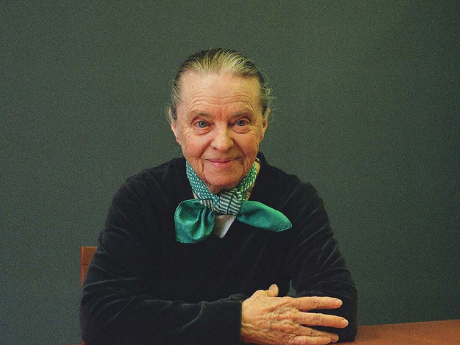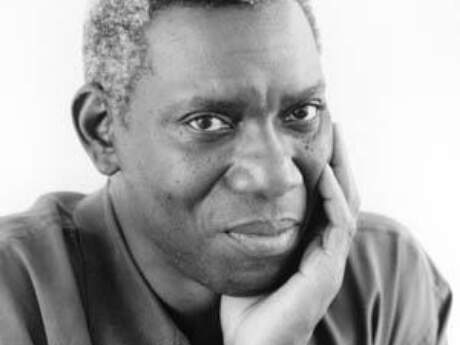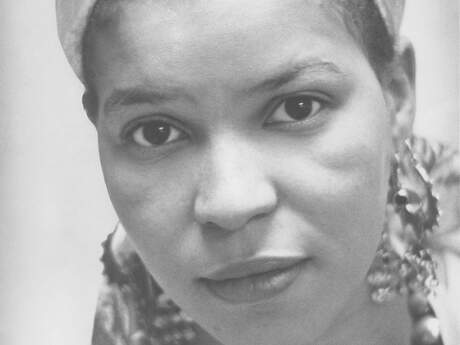First Loves
Marie Ponsot: First Loves

Thanks to lullabies, prayers, and Mother Goose, I had this much by heart before I could talk: Words say that people are present. And some words come together to make a place. It takes shape in the little stillness it causes to surround it, pleasing both speaker and listener. The first stanza that I knew to be a poem, I can still hear in my grandmother's voice:
Sunset and evening star
And one clear call for me,
And may there be no moaning at the bar
When I put out to sea.
She'd say it--maybe just the first line, as the rest hung in mind--with her face lit, turned to a radiant, fading sunset. What a word, "evening." I was read to, long after I could read. Bedtime meant Poems for Children; I'd ask for a long one, to stretch the time. Then mother would shut the book, pause in the lit hall, and recite, "I wandered lonely as a cloud / That floats on high o'er fields and hills...." for me to hum myself to sleep with, years before I noticed its content.
Mother's poems murmured. Not so my father's. I imitated his laughing rendition of "The Raven" in a fake-scary voice, as I joined in on the Nevermores. I relished the suspense, not of its story but of its sound. What a sound, Nevermore.
The first book I bought on my own--with saved lunch money--was H. D.'s Sea Garden. "It's out of print," said the Brentano's man. "Try the Holliday Book Shop." Fifteen, very shy, I hated to climb its tall red-carpeted stairs and face its elegant strangers. But I did. They had it. It cost five dollars. I took it home in subway bliss. H. D.'s sound was perfect, each syllable a step or gesture. It made other free verse (then the dominant convention) seem thick-eared: "bound round the ankles / with myrrh / with violets / and with half-opened myrrh..." Half-opened-yes. Bliss.
Next I bought Muriel Rukeyser's Theory of Flight. Its thrilling vigor set me scribbling in echo of her sharp American urgency, envying her knowledge of labor unions and real life.
How grateful I am for this chance to re-visit that early, unconsidered joy. I see I've explained nothing, and left out some of the best (the Odyssey, Baudelaire, Shakespeare, Gawain, Aucassin, more) of a long, dense, undifferentiated dream. I read and read and wrote and never thought, "I'm reading; I'm writing." I loved, unmediated, the imagining voice of poets (taking the outside in and the inside out, fusing the two given worlds) a voice I heard as the power to desire true free speech.
Originally published in Crossroads, Spring 1998.


